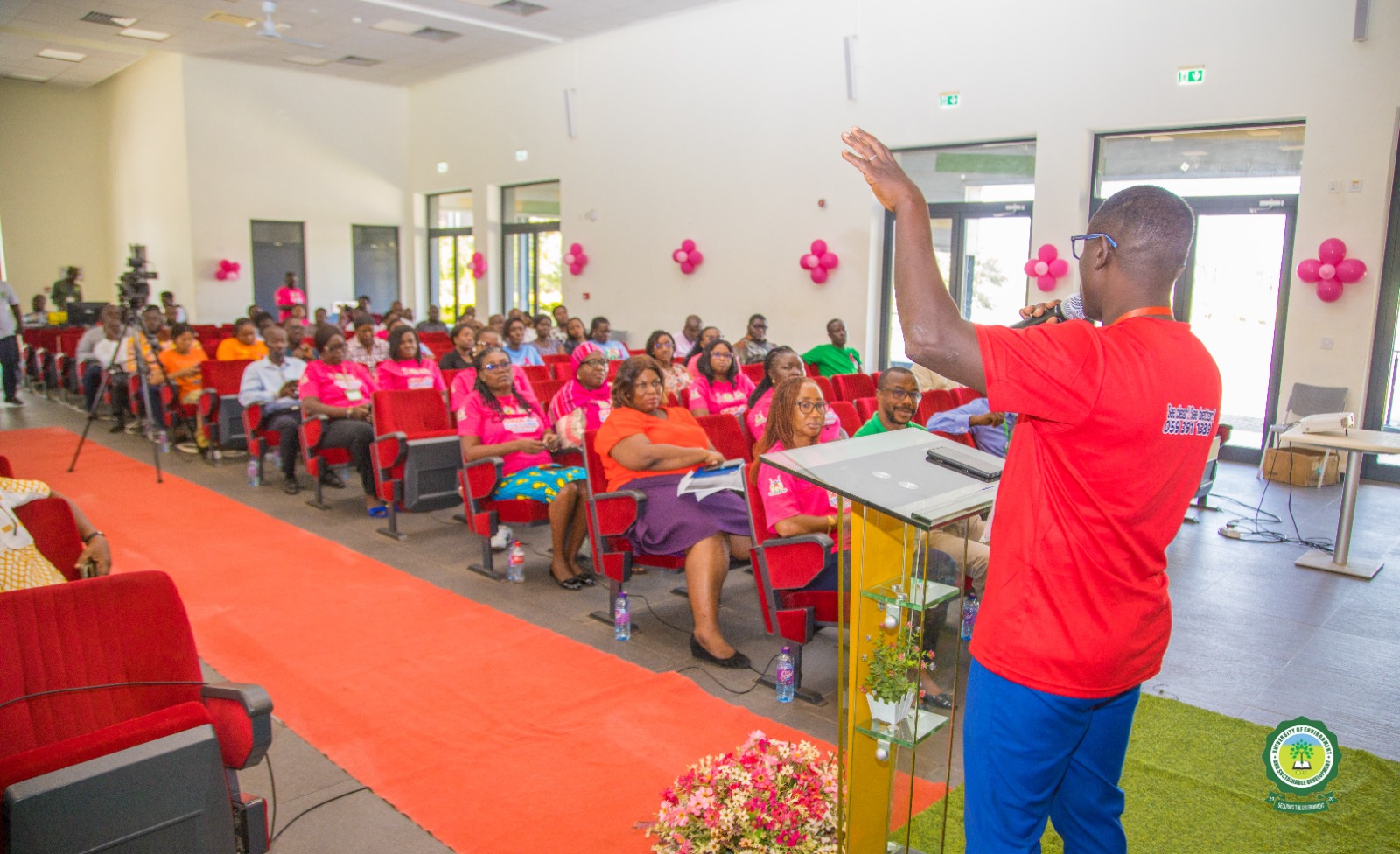Following its launch of the Breast Cancer Awareness Month, the UESD Ladies Club led a cancer awareness and screening campaign as part of the global effort to promote early detection and preventive healthcare. The event, held at the Auditorium of the Multi-Purpose Building, featured free screenings for breast, eye, cervical, and prostate cancers.
The screening was preceded by talks from health personnel and officials of the University.
In his opening remarks, the Vice-Chancellor, Prof. Eric Nyarko-Sampson, connecting via Zoom, welcomed staff and students and underscored the collective responsibility to protect personal and community health.
He urged participants to take advantage of the free screenings and become ambassadors of health within and beyond the university community.
“Healthy individuals and secure systems form the foundation of a strong university,” he said. “Stay secure, be aware, be accountable, and screen today so we can live better tomorrow,” he added.
The Deputy Registrar, Dr. Hammond Oppong Kwarteng, representing the 5th Anniversary Planning Committee, commended the Ladies Club for organizing the campaign. He thanked God for the gift of life and highlighted the importance of health consciousness for both men and women.
The Chief Executive Officer (CEO) of Sina Eye Clinic, Dr. Jerry-Dickson Lawerteh, led a session on eye health, stressing the importance of regular eye exams to prevent conditions such as glaucoma and presbyopia.
The Senior Nursing Officer at the UESD Sick Bay, Ms. Veronica Gyebuah, presented on breast cancer causes, risks, symptoms, and prevention, emphasizing the vital role of the breast in nurturing life and supporting women’s self-esteem. She highlighted the breast’s significance in women’s identity and confidence.
“Beyond biology, the breast helps women dress up and regain self-esteem. Truly, the breast is life,” she said.
Ms. Gyebuah stressed early detection and lifestyle changes: “Regular self-exams are crucial. If you notice any changes, seek medical help immediately.” She urged the audience to avoid alcohol and smoking, maintain a healthy weight, attend regular check-ups, and limit unnecessary hormonal therapies.
A urologist at the Tema General Hospital, Dr. Lemuel Bray, described urologists as “male gynecologists” who manage prostate, kidney, bladder, and infertility issues in both men and women. He urged men over 40 to undergo regular prostate screenings and be alert to symptoms such as difficulty urinating, weak flow, and frequent nighttime urination.

